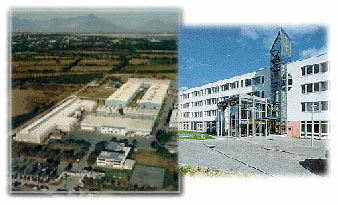ANALYSIS AND EVALUATION OF TECHNOLOGY AND INNOVATION POLICIES
|
Description |

Analysis and evaluation
These are two types of complementary studies:
1) On the one hand, there is extensive experience in the design and planning of policies related to science, technological change and innovation, both international and national as well as regional or local.
2) On the other hand, skills and experience are available in the evaluation of the results of previous policies, paying particular attention to the most modern techniques for evaluating the impact of specific policies or programs on the private or public receivers of the policies or programs.
|
How does it work |
In terms of policy design and planning, the methods employed combine, on the one hand, a deep understanding of the fundamental relationships between technological change and economic dynamics. The most influential factors are that the innovative activity is reflected in positive results at both the macro and microeconomic levels. On the other hand, it is based on an extensive analysis of the international experiences known to determine what kind of policies have been the ones that have obtained the best results according to their specific historical-institutional conditions of each case.
For the case of the evaluation of the impact of policies and programs, the most efficient techniques are used in the measurement of that impact. There are two planes that have to do with this evaluation; First, the relationship between policies, their instruments and the greater or lesser impulse they have on the innovative technological activity of companies or institutions. Second, it is a matter of seeing whether the greater or lesser technological-innovation effort translates into more positive economic and social results. To this end, quasi-experimental analysis techniques are used to isolate the impact of technological and innovative aspects of other factors with other characteristics.
|
Advantages |

Economic Development
The first great advantage lies in the long evaluation experience of the research team, which has developed a combined system of database analysis, surveys and in-depth interviews.
Another advantage to be highlighted is that the studies are based on a broad knowledge of the scientific relationships between the various aspects of the innovation process. In this sense, it starts from a systemic view of the process of creating innovations, which requires the combination of economic, sociological and institutional variables.
|
Where has it been developed? |
The fundamental basis lies in the Research Group on Economics and Innovation Policy of the UCM (GRINEI). It should be noted that this group, in addition to the participation of UCM staff, has the close and extensive collaboration of highly respected international experts from centers such as SPRU (University of Sussex), Manchester Institute for Innovation Research, University of Lisbon, University of London, University of Reading, Rudgers University, University of Chile, National Autonomous University of Mexico, University of Urbino, Luigi Boconni University of Milan, University of Rome, Maastricht University, among others. There is also the collaboration of national experts from the Universities of Salamanca, Seville, Zaragoza, Valencia, Jaen, Autónoma de Madrid, Leon and Polytechnic of Madrid.
Further. With more than 15 years of experience in interuniversity courses in Economics and Innovation Management, they are currently the Interuniversity Master in Economics and Innovation Management (MEGIN) and the Interuniversity Doctorate in Economics and Innovation Management (DEGIN) , In both cases, in collaboration with the Universities Polytechnic and Autonomous University of Madrid.
|
And also |
The group is in a position to offer the following services:
• Adapt the service to the specific problems of the client.
• Conduct technical feasibility studies for a specific application.
• Provide the possibility of technical assistance.
|
Contact |
|
© Office for the Transfer of Research Results – UCM |
|
PDF Download |
|
Classification |
Political Science and Sociology
|
Responsible Researcher |
José Molero Zayas: jmolero@icei.ucm.es
Complutense Institute of International Studies
Department: Applied Economics II
Faculty: Economics and Business Administration


